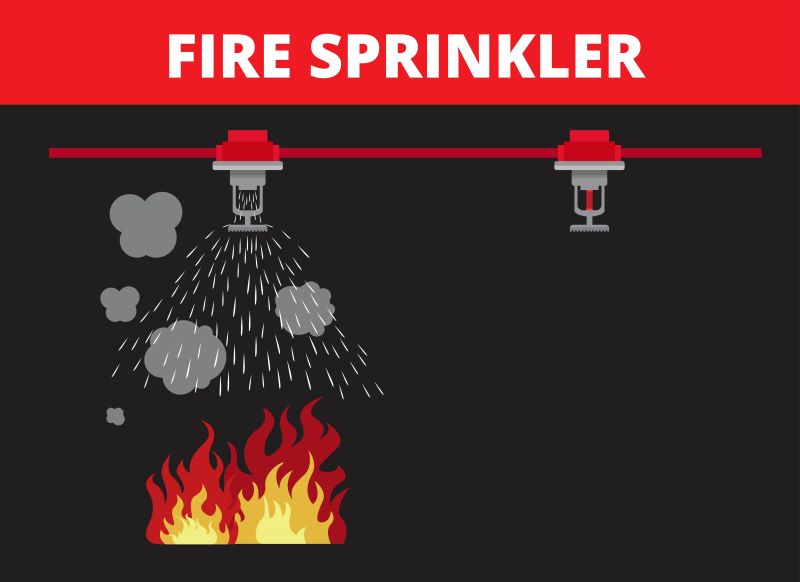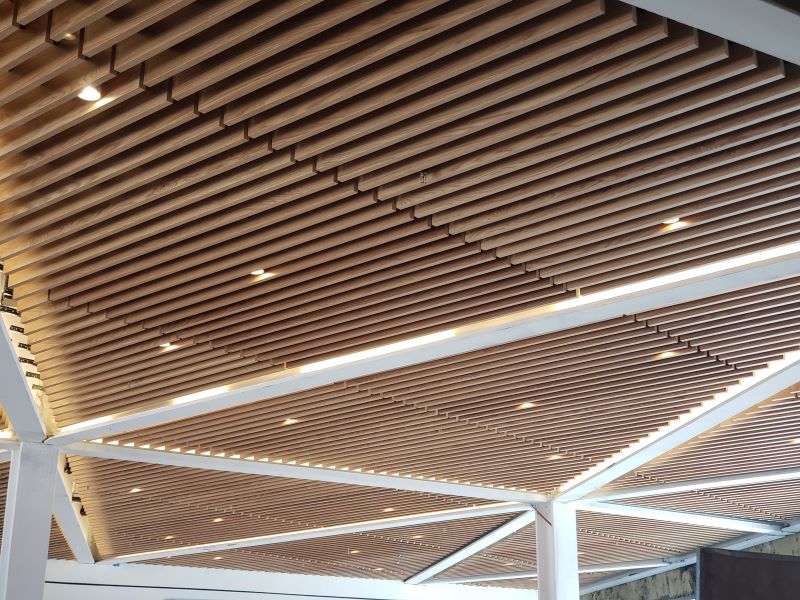Article by Vincent Magna (Fire Sprinkler Project Manager) and Lars Mascera (Marketing Manager)
Fire sprinkler systems are an essential part of fire protection systems in buildings. However, many people have myths and misconceptions about fire sprinkler systems that can lead to misunderstanding and misinformation. In this blog post, we will discuss the top ten common misconceptions about fire sprinkler systems:
Myth #1: Sprinklers will activate all at once:
One of the most common misconceptions about fire sprinkler systems is that all the fire sprinklers in a building will activate simultaneously in the event of a fire. This is not true; only the sprinkler closest to the fire will activate, and the rest will activate only if the fire spreads.
The only time a system has sprinklers that all go off at once are called deluge sprinkler systems. These are specially designed systems for specific applications. These are not your typical commercial or residential sprinkler systems.

Myth #2: Water damage is worse than fire damage:
Another common misconception is that fire sprinklers cause more damage to property than fire itself. However, fire sprinklers are designed to release only the necessary amount of water to control the fire, and this amount is much less than what firefighters would use.
Myth #3: Sprinklers are expensive:
Some people believe that fire sprinkler systems are expensive to install and maintain. However, the cost of installing and maintaining a fire sprinkler system is much lower than the cost of repairing or replacing property damaged by a fire.
Myth #4: Sprinklers are unsightly:
Many people think that fire sprinklers are unsightly and can detract from the appearance of a building. However, modern fire sprinkler systems are designed to be unobtrusive and blend in with the building’s architecture. In fact, our friends at Reliable can make custom cover plates for concealed heads to match colors and textures of any building material or design.
Myth #5: Smoke detectors are enough:
While smoke detectors are an essential part of a fire protection system, they cannot extinguish a fire. Fire sprinklers can quickly control and extinguish a fire before it can spread and cause significant damage.
Myth #6: Sprinklers will ruin your belongings:
Another common misconception is that fire sprinklers will ruin your belongings. However, the water released by fire sprinklers is much less than what firefighters would use, and it will not cause significant damage to your belongings.
Myth #7: Sprinklers are not necessary for small fires:
Even small fires can quickly get out of control and cause significant damage. Fire sprinklers are designed to detect and control fires quickly, preventing them from spreading and causing more damage.

Myth #8: Fire sprinklers are only for commercial buildings:
Fire sprinkler systems are essential for all buildings, including residential buildings. Residential fires can cause significant damage and result in loss of life, and fire sprinklers can help prevent this.
Myth #9: Sprinklers will go off accidentally:
Many people believe that fire sprinklers will go off accidentally, causing damage to their property. However, fire sprinklers are designed to activate only when they detect heat from a fire, not smoke or steam. Most of the time when you hear of a fire sprinkler “accidentally” going off, it is when human error is involved and someone hits or breaks the sprinkler head.
Myth #10: Sprinklers require a lot of maintenance:
While fire sprinkler systems do require regular maintenance, it is not a significant amount of maintenance. Regular inspections and testing can ensure that the system is working correctly and can quickly detect and control fires.
Fire sprinkler systems are an essential part of fire protection systems in buildings. Understanding the common misconceptions about fire sprinkler systems can help ensure that buildings are adequately protected against fires. Fire sprinklers are an effective and efficient way to control fires and prevent them from spreading, and they are a necessary investment for any building.


